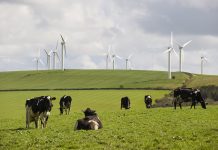An alliance of UK firms have urged government to bring forward the ban on sales of new petrol and diesel cars and vans to 2030 – and mandate that carmakers make more electric vehicles.
The UK Electric Fleets Coalition, which launched last month, now has 21 corporate members with some 400,000 vehicles between them. These are: Anglian Water, BT, Centrica, DPD UK, Engie, Fleet Alliance, Foxtons, Hitachi Capital UK, Iberdrola (Scottish Power), Ingka Group (IKEA), LeasePlan, Mawdsleys, Mitie, Natwest Group, Octopus, Openreach, Ørsted, Ovo Energy, Severn Trent, Tusker and Unilever.
They want government to drive the market forward by banning combustion sales earlier while continuing grant support and mandating annually increasing EV production targets for carmakers. They also call for government to speed up rollout of public chargepoints that can be used by any payment system.
The Climate Group and BT Group launched the alliance last month.
Details here.
If your business is planning on rolling out EV charging infrastructure, you can hear from Coalition members DPD and Mitie plus a number of other experts next week, as The Energyst hosts a series of free EV webinars, 10.30-12.30, Tuesday to Thursday. Sign up here.




Sell the new cars at the same price including Hybrid Cars to get the distance. Millions of Fast Charging stations installed on road and at stops also Hotels, Guest Houses also camping sites and visitor attractions/Railway Stations made mandatory in 5 years paid for by the government. The driver pays only or the charging energy.
All cars must have sat nav with all the charging points on also if each one is in use. Free parking at Charging stations. It would be quicker if the batteries could be changed within 5 minutes at stops and attractions. It’s just a design problem on the car that the manufactures can solve with fixed design systems that change the battery. Hybrid must only use fuel as a standby especially on long journeys.
Car must run sfor 200 miles on a battery. What about lorries, we should bring back goods yards on the railways and lorries collect locally and deliver by battery vehicles. Mail should go back on the railways waste of a railway system that could do the work with less pollution.
Peter makes some valid points above. But a totally EV future is out of the question. There will always be a requirement for an IC engine. EV’s are a bit of a fraud, in that no-one bothers to take into account the environmental damage incurred in procuring the essentials to make the batteries. Secondly, most of these minerals come from China, which is going to be a no-no. What do we do with the spent batteries?
A battery will never have the energy density on petrol or diesel, so EV’s are destined as short hop vehicles for the foreseeable future. What about the losses incurred in charging and discharging the batteries? No energy transfer is ever 100% efficient.
Relying on renewable energy to recharge is also out of the question. Not reliable, and the costs of installing are ridiculous. Who pays for this nonsense? The consumer. This is why we cannot even manufacture a teaspoon in the UK, our energy costs are simply too high.
We are destined to rely on fossil fuels for a long time to come, These companies advocating a 2030 ban on IC vehicles deserve to be put out of business, they are a bunch of lunatics. Hopefully the folly of this will come home to them, and they see the error of their ways.
goverment should be investing with people like mr dyson and start producing hydrogen cell cars and start to create jobs as power house energy comes on line with there producing plants from recycling products it would be good way to go and make more from the recent hydrogen powered plane its the way forward